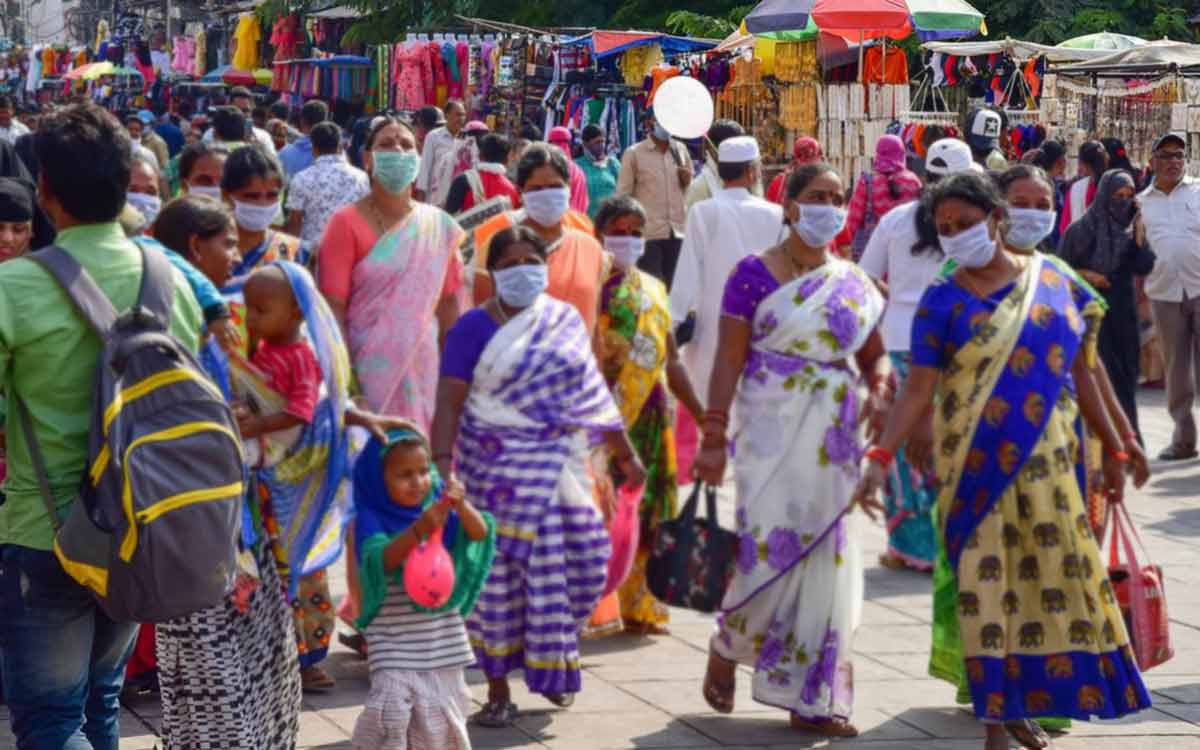The Confederation of Indian Industry (CII) urged for policy action to avoid serious impact on GDP growth due to the crisis created by the coronavirus pandemic. As per a note released, the rapidly spreading coronavirus has derailed the global economy, increasing the chances of a global recession and impacting the Indian GDP. Policymakers around the globe are considering measures to fight the risks of a sharp slowdown by supporting businesses at this critical time. Major economies have all announced large stimulus packages to help soften the adverse impact on consumption and overall economic activity on growth while central banks have front-loaded rate cuts.
India has already been facing growth deceleration, with GDP growth has fallen to 4.7% in Q3FY2020. The impact of COVID-19 is likely to pull it down further in the fourth quarter. GDP growth could slide to below 5.0% in FY2021 if policy action is not taken urgently. “Fiscal and monetary stimulus measures need to be announced urgently,” said Mr. Chandrajit Banerjee, Director General, CII. In this context, he added that “CII welcomes the Economic Response Task Force created by the Prime Minister and looks forward to work closely with it.”
Global growth forecasts have been downgraded by several institutions. OECD is now forecasting 2.4% global GDP growth in 2020 compared to a forecast of 2.9% made in October 2019. Similarly, Goldman Sachs has downgraded its forecast from 3.4% to 1.3%, Morgan Stanley from 3.2% to 2.7% and Moody’s from 2.4% to 2.1%.
Specifically, eight action points have been articulated to prevent coronavirus from affecting the GDP:
One, as done in many countries, the Government may consider a strong fiscal stimulus to the extent of 1 percent of GDP amounting to Rs 2 lakh crores to be given in the hand of the needy citizens through Aadhar based Direct Benefit Transfer. An amount of Rs 10,000 for each individual especially the rural and urban poor and Rs 10,000 for the most vulnerable section – the elderly. The PLFS data shows that there are about 20 crore casual labourers who could be the identified beneficiaries. This will help spur consumer demand.
Two, to improve market sentiments, that is currently witnessing extreme volatility, the Government may consider removing Long Term Capital Gains tax of 10% and fixing the total Dividend Distribution Tax at 25%.
Three, GST payments should be on the collection of Bills than on raising of invoices. This will help avoid liquidity getting locked in case there is a delay in payments.
Four, the pending payments to the industry by the Government should be cleared on a priority basis.
Five, on the Monetary measures to be taken, an immediate Repo rate reduction of 50 basis points along with a 50 basis points reduction in Cash Reserve Ration (CRR) should be announced to ensure the low cost of funds. Similar measures have been taken by major central banks including in the US, England, and China.
Six, the RBI may consider relaxing the NPA recognition norms from 90 days to 180 days till September 30, 2020, to provide relief to an industry faced with payment issues as well as pressure .on banks to classify loans as NPAs. Similarly, Special Mention Accounts (SMA) guidelines may be relaxed with the SMA-1 category considered from 60 to 90 days and SMA-2 category from 90 to 180 days beyond which the loan account may be considered NPA.
Seven, the RBI should create special liquidity lines for NBFCs, ARCs over and above the window available to Banks. This would be similar to the TARP (Troubled Asset Relief Programme) instituted in the US following the global financial crisis and would ensure that credit transmission happens in a timely manner.
Eight, the Government could create a corpus for supporting MSMEs to tide over the crisis for wages payable during the temporary shut-down, cash flow disruptions, working capital requirements.
“Feedback received from members reveals that sectors such as tourism, hospitality, retail, civil aviation, etc. are the most affected by the restrictions on the movement of people. While all precautions and safety measures are being employed by industry, they would need support from the Government to manage the disruptions and maintain business continuity”, Mr. Banerjee concluded.
On Tuesday, Mr. Satish Reddy, Chairman, CII Southern Region, commended the proactive measures being taken by the Government. The ongoing coronavirus pandemic has placed extraordinary demands on the industry and the people of this country. We welcome the efforts of the Central and State governments in combating the spread of this virus. The CII also applauds the efforts of all those who strive to provide essential services and healthcare to the country in this time of need.
The industry is doing its best in the face of this crisis – however, industries such as tourism, hospitality, retail, aviation, and others have been considerably affected by this unforeseen turn of events. Support from the Central and State governments can help significantly in managing disruptions and ensuring business continuity. The CII recommends that the Government consider fiscal and monetary stimulus measures to soften the adverse impact on consumption and overall economic activity in the country.
As received in a press note.










Discussion about this post